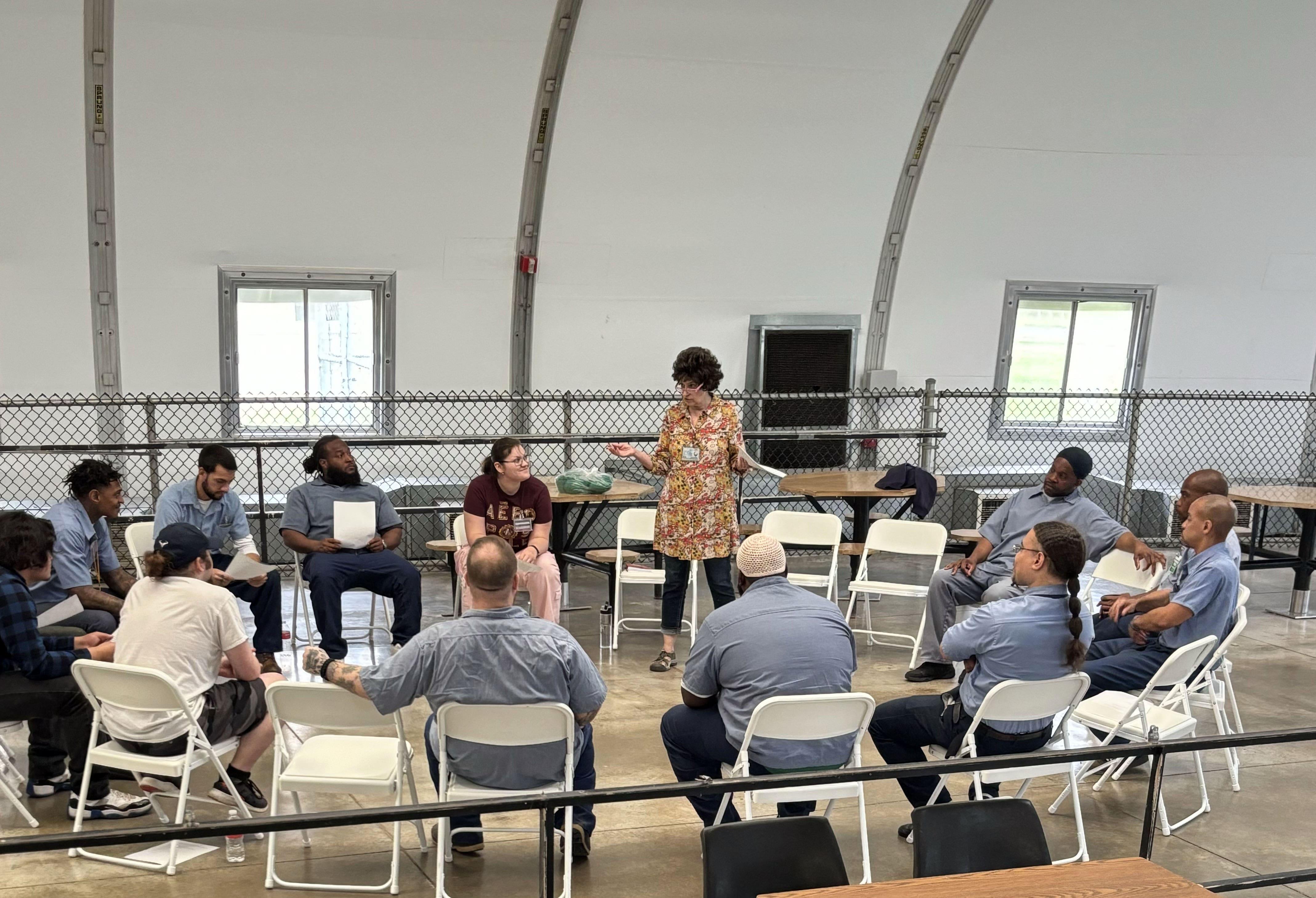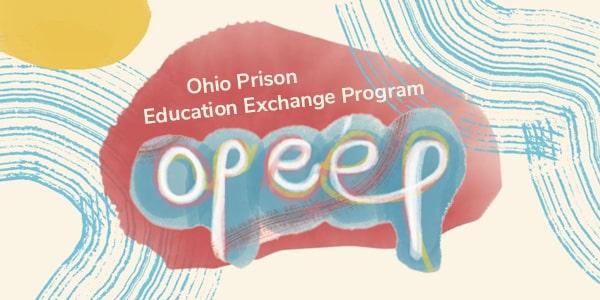In acting and in life, little changes can vastly alter the scene and perspectives. When theatre lecturer Margie Anich began teaching her acting studio class at the Allen-Oakwood Correctional Institution in Lima as part of the Ohio Prison Education Exchange Project this spring, she should have guessed big changes were coming. It is an improv class after all.
During the final presentation, which was open to special guests, the words trust and community came up repeatedly from the student presenters as they led the audience through a variety of exercises that built teamwork, camaraderie and that big word again -- trust.
“Applied improv is using improv exercises in a whole variety of different settings, usually with the purpose of building a greater sense of community or better collaboration among teams,” Anich said. “A lot of times the way it's used is to help people communicate better, collaborate better, become better listeners, become more open to new ideas and more innovative in their thinking.”
Anich had added a new textbook to this section of her class, one focused on applied improv which adds a greater goal to the practice. The case studies in the book run the gamut from restaurants to oncology units to refugees applying the principles. The goal-based component resonated with both her and her students.
The incarcerated students really liked the book and were planning ways to incorporate what they were learning into other groups within the prison and also thinking about how it could improve their lives and skills beyond the prison.
The strong response to applied improv prompted Anich to adjust her approach to the whole class. She flipped the final project to allow students to talk about what they had learned while leading the larger group of guests in ensemble-building exercises. You may know them better as long-running ice breakers. Anich invited staff and faculty from campus and the incarcerated students invited friends and others from the prison they thought would be interested. Those participating in the final project more than doubled the size of the 11-student class.
The number of new faces from the incarcerated population showed a level of interest in the process and skills of improv that bode well for future classes. Anich looks forward to the opportunity to teach in the prison again.
“I really loved teaching this class and I really loved working with this population. It was just so interesting to hear their perspectives.” “I found these guys really interested and very insightful and thoughtful. I really like working with them. That's why I'm looking forward to working with them again and doing more. And I hope that this particular first group didn't spoil me, because these guys were great.”
Anich wasn’t sure what to expect, but was delighted with the overwhelming response from the incarcerated students when the class was announced. Much like students on campus have to meet prerequisites for upper level classes, incarcerated students had to go through a process to get into Anich’s class that, in their cases, involved an application and interview. The end result was a mix of campus and incarcerated students with a variety of backgrounds and experiences. Some of the incarcerated students had college experience and one was formerly a stand-up comedian.
“The big thing with OPEEP really is that everyone deserves an education. We are a land-grant institution and that includes incarcerated folks,” Anich said. “A lot of it is just opening opportunities for them to learn and bringing community together. Certainly, I think for our campus students, their perspectives about incarcerated folks will be changed greatly since taking the class. Mine have.”
All the students were happy to learn from Anich and each other. The incarcerated students who put the effort in to get into the class often talked about their goals of using the class and education in general as a way to improve their approach to live.
“The guys in the improv class all talked about what we are all learning here, or that what we want, not just in this class but here, is that if we have to be here, then we want to learn and we want to grow while we're here because we want things to be different when we get out. We want to have a different life when we get out. We want to have better choices and better options when we get out,” Anich said.
The acting studio class was not just a first for Anich. It is also the first theatre class taught through OPEEP at all. Anich would like to teach another class as part of OPEEP in spring 2025. The trick she knows will be getting campus students to sign up for a theatre class, in prison. Both elements can be intimidating to the younger students on campus.
Eventually, she would like to do a Shakespeare class with all the Bard’s big themes of redemption, bravery, identity, fate and free will, mental health, love and power. There is a lot to be learned. Successfully bringing Shakespearean scenes to life is also a confidence booster for all her students.
“During the interview process, one of the incarcerated students who got into the class said to me, ‘There are lots of guys here interested in theatre and the arts. This could be the start of something big!’ I think he's right,” Anich said “OPEEP is just getting started at Allen-Oakwood Correctional Institution, and I think there's a lot more we can do there.”

